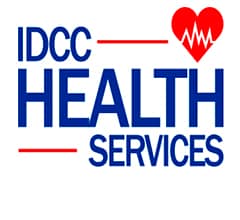Seeking help for mental health concerns is a significant step toward better emotional well-being. If you’ve scheduled a psychiatry appointment, it’s natural to have questions about what to expect. This guide aims to provide a comprehensive overview of what typically occurs during a psychiatry appointment, including what you should prepare for, common procedures, and how to make the most out of your visit. Whether you’re attending your first psychiatry appointment or seeking to understand the process better, this article will help you feel more informed and at ease.
Improve your mental health in Brooklyn—seek help today!

What to expect at a psychiatrist appointment?
Visiting a psychiatrist can be a daunting experience, but knowing what to expect can ease your anxiety and ensure you get the most out of your appointment. Here’s a breakdown of the typical psychiatry appointment process:
Intake and Assessment
- Paperwork Party: Buckle up for paperwork! You’ll likely fill out forms about your medical history, mental health concerns, and personal background.
- Meet & Greet: The psychiatrist will introduce themselves and ask questions about your current symptoms, triggers, and how long you’ve been experiencing them. Don’t worry, they’re not judging you, just trying to understand your situation.
Discussion and Evaluation
- Talk Time: This is where you get to share your story. Be open and honest about your experiences, emotions, and any specific issues you’re facing. The more information you provide, the better the psychiatrist can understand you and develop a personalized treatment plan.
- Mind Games: The psychiatrist might use questionnaires or diagnostic tools to assess your mental state. This helps them get a clearer picture of what’s going on and rule out any underlying medical conditions.
Diagnosis and Treatment Plan
- The Verdict: Based on the assessment and discussion, the psychiatrist will provide a diagnosis if applicable. This can be helpful in understanding your condition and guiding treatment.
- Charting the Course: Now comes the treatment plan! This might include therapy, medication, lifestyle changes, or a combination of these. The psychiatrist will discuss the options with you and address any questions or concerns you might have.
Medication Management (If Prescribed)
- Med Talk: If medication is part of your plan, the psychiatrist will explain its purpose, potential side effects, dosage, and how to take it properly. They’ll also encourage you to ask questions and express any concerns you have about medication.
- Follow-Up is Key: The psychiatrist will likely schedule follow-up appointments to monitor your progress and adjust the medication if needed. Remember, open communication is essential, so let them know if anything feels off or changes.
Bonus Tip
- Bring a Support Person: If you feel comfortable, consider bringing a trusted friend or family member to your appointment for moral support and note-taking.
Remember, seeking help is a sign of strength, and your psychiatrist is there to guide you on your journey toward mental well-being. Take a deep breath, be prepared, and trust the process. You’ve got this!
Do psychiatrists prescribe medication first visit?
Whether a psychiatrist prescribes medication during an initial consultation depends on various factors. Understanding these can help set realistic expectations for your first visit.
Severity of Symptoms: If symptoms are intense and significantly disrupt your life, immediate medication might be considered as a primary treatment.
Nature of Symptoms: For certain conditions like major depression or schizophrenia, which often respond well to medication, early consideration of pharmaceutical intervention is common.
Medical History: The psychiatrist will evaluate your existing medical conditions and any current medications to prevent potential adverse interactions.
Personal Preferences: Your opinion matters. The psychiatrist should discuss medication pros and cons and respect your decision on whether to use medication.
Typically, psychiatrists do not rush to prescribe medication during a first visit, unless there’s an urgent need. The initial session usually involves:
Understanding Your Background: Expect discussions about your symptoms, medical history, and lifestyle.
Diagnosing: Using gathered information, the psychiatrist aims to diagnose your mental health condition.
Creating a Treatment Plan: This plan may include medication, therapy, and lifestyle modifications.
If medication is prescribed, it usually starts at a low dose with close monitoring for side effects. You’ll receive clear instructions on medication use and have the opportunity to ask questions.
Additional Considerations
- Medication Isn’t Always the Answer: It’s a valuable tool but not always necessary or effective for everyone.
- Effectiveness Varies: You might need to try different medications or combinations to find what works for you.
- Be Aware of Side Effects: Know the potential side effects and communicate with your doctor if you experience any issues.
- You’re Not Alone: Help is available for mental health challenges. Reach out to healthcare professionals, support groups, and community resources.
This information should provide a comprehensive view of what to expect regarding medication prescription during your first psychiatric visit and the factors influencing such decisions.
Conclusion
A psychiatry appointment is a significant step in addressing and managing mental health concerns. Knowing what to expect, from gathering information and preparing questions to the appointment process itself, can help you feel more confident and informed during your visit. Remember that your psychiatrist is there to support you on your journey to better mental health, and open communication is key to a successful treatment plan. By actively participating in your care and following the recommended treatment, you can work towards improved emotional well-being and a healthier future.
Frequently Asked Questions (FAQs)
How long does a psychiatry appointment typically last?
Psychiatry appointments can vary in length, but the initial evaluation appointment is often longer, ranging from 45 minutes to an hour. Follow-up appointments are typically shorter, lasting around 15 to 30 minutes.
Do I need a referral to see a psychiatrist?
In some cases, a referral from a primary care physician or another healthcare provider may be required to see a psychiatrist. However, many individuals can schedule appointments with psychiatrists directly, depending on their healthcare coverage and specific circumstances.
What if I don’t agree with the treatment plan proposed by the psychiatrist?
It’s essential to communicate openly with your psychiatrist if you have concerns or questions about the proposed treatment plan. Discuss your reservations, ask for alternative options, and collaborate with the psychiatrist to make decisions that feel right for you.
